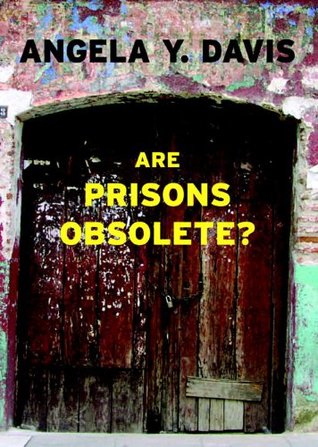More on this book
Community
Kindle Notes & Highlights
This is a measure of how difficult it is to envision a social order that does not rely on the threat of sequestering people in dreadful places designed to separate them from their communities and families.
When many young people decide to join the military service in order to avoid the inevitability of a stint in prison, it should cause us to wonder whether we should not try to introduce better alternatives.
According to a recent study, there may be twice as many people suffering from mental illness who are in jails and prisons than there are in all psychiatric hospitals in the United States combined.
The gravity of these numbers becomes even more apparent when we consider that the U.S. population in general is less than five percent of the world’s total, whereas more than twenty percent of the world’s combined prison population can be claimed by the United States.
Short of major wars, mass incarceration has been the most thoroughly implemented government social program of our time.”2
Why do prisons tend to make people think that their own rights and liberties are more secure than they would be if prisons did not exist?
People wanted to believe that prisons would not only reduce crime, they would also provide jobs and stimulate economic development in out-of-the-way places.
The prison therefore functions ideologically as an abstract site into which undesirables are deposited, relieving us of the responsibility of thinking about the real issues afflicting those communities from which prisoners are drawn in such disproportionate numbers. This is the ideological work that the prison performs—it relieves us of the responsibility of seriously engaging with the problems of our society, especially those produced by racism and, increasingly, global capitalism.
The prison has become a black hole into which the detritus of contemporary capitalism is deposited. Mass imprisonment generates profits as it devours social wealth, and thus it tends to reproduce the very conditions that lead people to prison.
The most difficult and urgent challenge today is that of creatively exploring new terrains of justice, where the prison no longer serves as our major anchor.
Slavery, lynching, and segregation are certainly compelling examples of social institutions that, like the prison, were once considered to be as everlasting as the sun.
It is extremely unsettling to think of modern, industrialized urban areas as having been originally produced under the racist labor conditions of penal servitude that are often described by historians as even worse than slavery.
While the convict lease system was legally abolished, its structures of exploitation have reemerged in the patterns of privatization, and, more generally, in the wide-ranging corporatization of punishment that has produced a prison industrial complex.
greater value on discipline and security than on knowledge and intellectual development, they are attending prep schools for prison.
As I have already indicated, the origins of the prison are associated with the American Revolution and therefore with the resistance to the colonial power of England.
incarceration within a penitentiary was assumed to be humane—at least far more humane than the capital and corporal punishment inherited from England and other European countries.
Thus, the documentary revolves around the very last graduation ceremony on July 15, 1995, and the poignant process of removing the books that, in many ways, symbolized the possibilities of freedom. Or, as one of the Marist professors said, “They see books as full of gold.” The prisoner who for many years had served as a clerk for the college sadly reflected, as books were being moved, that there was nothing left to do in prison—except perhaps bodybuilding. “But,” he asked, “what’s the use of building your body if you can’t build your mind?” Ironically, not long after educational programs were
...more
Studies indicating that women have been even more likely to end up in mental facilities than men suggest that while jails and prisons have been dominant institutions for the control of men, mental institutions have served a similar purpose for women. That is, deviant men have been constructed as criminal, while deviant women have been constructed as insane.
The term “prison industrial complex” was introduced by activists and scholars to contest prevailing beliefs that increased levels of crime were the root cause of mounting prison populations. Instead, they argued, prison construction and the attendant drive to fill these new structures with human bodies have been driven by ideologies of racism and the pursuit of profit.
“Forget about reform; it’s time to talk about abolishing jails and prisons in American society . . . Still—abolition? Where do you put the prisoners? The ‘criminals’? What’s the alternative? First, having no alternative at all would create less crime than the present criminal training centers do. Second, the only full alternative is building the kind of society that does not need prisons: A decent redistribution of power and income so as to put out the hidden fire of burning envy that now flames up in crimes of property—both burglary by the poor and embezzlement by the affluent. And a decent
...more
The alternatives toward which I have gestured thus far—and this is only a small selection of examples, which can also include job and living wage programs, alternatives to the disestablished welfare program, community-based recreation, and many more—are associated both directly and indirectly with the existing system of criminal justice.
A few days after the September 11 attacks, the Biehls had been asked to speak at a synagogue in their community. According to Peter Biehl, “We tried to explain that sometimes it pays to shut up and listen to what other people have to say, to ask: ‘Why do these terrible things happen? ’ instead of simply reacting.”


